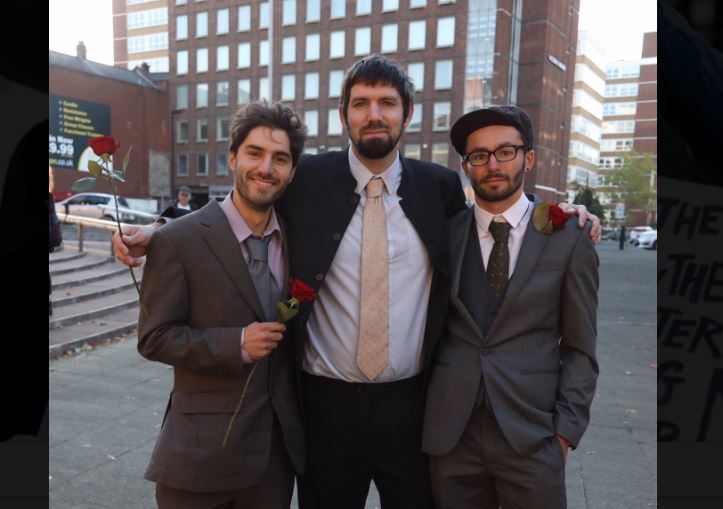
Hundreds of UK university academics have signed an open letter calling for a parliamentary inquiry into the sentencing of four fracking campaigners.
The letter, originally titled ‘open letter from University of Sussex academics’, complains about the “harsh sentencing”, adding that it sets a “dangerous precedent”.
The number of academics signing the open letter continues to grow, and is currently close to 1000 names.
The case centres disruption at energy firm Cuadrilla’s base in Preston New Road in Little Plumpton, Lancashire, in July 2017, which lasted just under 100 hours as campaigners scaled lorries and refused to come down.
Last week, Simon Blevins, 26, from Sheffield, and Richard Roberts, 36, of London, were both jailed for 16 months, while Rich Loizou, 31, from Devon, was jailed for 15 months.
A fourth defendant, Julian Brock, 47, from Torquay was sentenced to 12 months in custody, suspended for 18 months.
Academics across the country say they have signed the letter to express a “growing concern about the shrinking space for communities and environmental defenders to engage in civil opposition to fracking developments in the UK”.
The letter goes on to argue that the campaigners were handed a lengthy jail term “for simply ‘causing a public nuisance’ and for not expressing regret”.
Adding: “This is the first time since 1932 that environmental defenders have been imprisoned for such long periods of time for staging a protest in the UK. It is also the first time ever that activists have been jailed for anti-fracking actions”.
The letter ends with those signatories requesting a parliamentary inquiry into “the declining space” for civil protest.
Andrea Brock, lecturer in International Relations, and Dr. Amber Huff, research fellow at the Institute for Development Studies, said:”We started this letter to express our serious concerns about the absurdly harsh jails sentences of three anti-fracking protesters who took action against fracking in Lancashire in 2017.
“The ruling, by a judge with links to the oil and gas industry, lays bare the government’s unconditional and unapologetic support of the fracking industry. This support is evident in recent legislative changes in the infrastructure act and current attempts to classify fracking as ‘permitted development’. Yet, fracking carries enormous social and environmental costs and hazards. It destroys landscapes and ecosystems and brings human health risks. Fracking further entrenches our societal addiction to fossil fuels, a major factor in global climate change.
“The ruling is part of a wider trend of criminalisation of protest in the UK, reducing the scope to protest to mere symbolism. The sentencing needs to be read in conjuncture with the increased use of injunctions to pre-empt protest and protect corporate profits.”